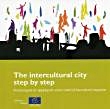Topic 1: New Media and Cultural Participation
Today’s media and, in particular, the new digital information and communication technologies heavily impact the social and cultural life of our societies.
Can digital media enhance democracy, even lead to a democratisation of culture? Have these technologies actually made us more (inter-) active citizens as far as cultural creation and expression are concerned?
Related questions and concerns are taken up in a "Think Piece" by Dutch expert Joost Smiers, along with controversial issues such as copyright in the digital age. Recently this came up in the debates of the Anti-Counterfeiting Trade Agreement (ACTA), whose EU-wide adoption was just rejected by the European Parliament. As well, the sudden success of "Pirate Parties" all over Europe can be attributed to their outspoken challenge of the current forms of exploitation of intellectual property rights.
We look forward to your views and comments!
Digitisation and cultural democracy, an (as yet) unfulfilled promise
ThinkPiece #1 by Joost Smiers
 We are surrounded by, and increasingly dependent on, digital information and communication technologies and have been for the last two decades. As they have lost their novelty, this could be the right moment to discuss a question that has been burning in our minds for some time:
We are surrounded by, and increasingly dependent on, digital information and communication technologies and have been for the last two decades. As they have lost their novelty, this could be the right moment to discuss a question that has been burning in our minds for some time:
Have these once new digital information and communication technologies really made us more (inter)active citizens, as far as cultural expressions are concerned? Was this not the promise and expectation when we first confronted the endless possibilities the digital world offered us?
Most of us have become passive consumers of what the entertainment industry and advertising media try to sell us, but it was originally thought that digitisation would result in a radical change in this laid-back attitude. However, I am not so sure that this has actually happened.
Articles on digitisation and cultural democracy
collected by Sandrine Marolleau
![]() Rapporteur on Fundamental Rights Finds ACTA Contrary to Democratic Values
Rapporteur on Fundamental Rights Finds ACTA Contrary to Democratic Values
![]() ACTA in Parliamentary Committees: Urgent Citizen Participation Required
ACTA in Parliamentary Committees: Urgent Citizen Participation Required
![]() Democracy and the Digitisation of Audiovisual Culture
Democracy and the Digitisation of Audiovisual Culture
![]() Which skills for culture in a globalised and digitised world?
Which skills for culture in a globalised and digitised world?
HOT Press
euro|topics - Culture/Media
- Debate: UN: how to reform a global organisation?
- Not much in the way of major changes | Avvenire - Italy
- Denmark can do its bit now | Politiken - Denmark
- Good reputation means it deserves support | Kristeligt Dagblad - Denmark
- Multilateral responses needed | Le Monde - France
- Unsurmountable obstacles with Trump | El País - Spain
HOT Publication
The Intercultural City - Step by Step (February 2013) It falls primarily upon cities to design and implement policies that foster community cohesion and turn cultural diversity into a factor of development rather than a threat. This practical guide for applying the urban model of intercultural integration is designed for city leaders and practitioners wishing to learn from the "Intercultural Cities" pilot project run by the Council of Europe and the European Commission in developing an intercultural approach to diversity management. The guide recommends steps and measures to help develop an intercultural strategy and monitor its implementation.
It falls primarily upon cities to design and implement policies that foster community cohesion and turn cultural diversity into a factor of development rather than a threat. This practical guide for applying the urban model of intercultural integration is designed for city leaders and practitioners wishing to learn from the "Intercultural Cities" pilot project run by the Council of Europe and the European Commission in developing an intercultural approach to diversity management. The guide recommends steps and measures to help develop an intercultural strategy and monitor its implementation.
HOT Events
Cultural Participation as a Human Right?
At a press conference held on 15 January 2013, city officials from Wroclaw (Poland) announced their intention to strive, in cooperation with the Polish Government, for an inclusion of the "right to participation in culture" as one of the basic rights in the Convention for the Protection of Human Rights and Fundamental Freedoms of the Council of Europe - in 2011, the city of Wroclaw had been selected to become the European Capital of Culture in 2016. A Panel of Experts, co-organized with NCK (National Centre of Culture), met on March 6 in Wroclaw to further clarify this issue. A larger Expert Conference on the right to culture in international legal instruments is to be held November 2013 in Warsaw. More...
Featured soon:
- The Culture of a Sustainable Environment
- (Non-) Participation in Culture: Issues and Remedies
- Freedom of Religion vs. Freedom of Expression: Two sides of a coin?


